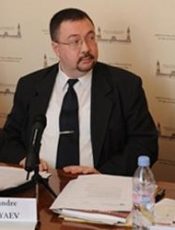In accordance with a number of UN Security Council resolutions, the UN Secretary-General must submit reports on the situation in Syria every 30 days. The most recent of these reports was submitted by Ban Ki-moon on 22 October. Despite the fact that the position of UN Secretary-General is entirely neutral, it seems that the current UN Secretary-General has effectively become a «lame duck».
In his report on Syria, the UN Secretary-General says that all the parties to the armed conflict are committing international crimes, primarily war crimes and crimes against humanity. Ban Ki-moon constantly refers to the deaths of civilians during military operations carried out by government forces. For example, his report to the Security Council says that: «Government forces continued their aerial and ground attacks in Duma in eastern Ghutah during the reporting period, including on civilian areas, killing at least 25 civilians and injuring at least 270 more».
The report also talks about crimes committed by the so-called opposition, but in much milder terms. When referring to a number of crimes committed by «opposition groups», for example, Ban Ki-moon invariably adds that they were carried out «in response» to actions by government forces.
The Secretary-General’s reports serve as a basis for resolutions adopted by the UN Security Council, including on the use of force. In this regard, it is essential that any information provided is accurate. The sources of information used by the UN Security-General to compile his report are therefore particularly noteworthy: «The information contained herein is based on the data available to the United Nations agencies on the ground, from the Government of the Syrian Arab Republic and from open sources». It becomes clear when reading the text of the report that it does not specify a single source! You need to work out for yourself which information «available to United Nations agencies» was obtained by Ban Ki-moon from Islamic State militants and which information was taken from the Internet and newspapers.
Central to Ban Ki-moon’s report is the section that virtually accuses the Russian Federation of committing war crimes. In Paragraph 4, for example, the UN Secretary-General says that during air strikes from Russian forces, «Zaafarani village was struck, killing at least 11 civilians and wounding more than 50 others. Rastan was also struck, killing six civilians, four of whom were children. Residential neighbourhoods in Tallbisah were also reportedly hit, killing at least 15 civilians».
The UN Security General also states that this information was received by the Office of the United Nations High Commissioner for Human Rights (OHCHR). Once again, it fails to say from whom exactly the information was received. Here we are dealing with a crude and deliberate frame up.
There is a good reason why the Russian Foreign Ministry appraised the report in rather harsh terms. Ban Ki-moon’s statement was referred to as «the circulation of false materials». The spokesperson for the Russian Foreign Ministry reported that, «the other day the Russian Defence Ministry invited military attaches to ask them direct questions about the sources they draw their news from – the information about Russia allegedly hitting the wrong targets eventually killing civilians. No information was officially handed over to us. At the same time, these types of propaganda props – which is what they are – are sent out slyly right before important events».
The attack against Russia was the most important point in Ban Ki-moon’s report. For several years now, an idea favoured by the UN Secretary-General has been the ‘recommendation’ that the situation in Syria be referred to the International Criminal Court. This desire is not only unjustified in terms of the facts, but is also illegal. The UN Secretary-General is not actually the «head of the UN», as he is often referred to, but is merely the head of a UN body called the Secretariat. In addition, a UN employee cannot call for the situation in a UN member country to be referred to any another organisation. Russia has used its veto three times to block such attempts. And lest there be any doubt who his main target is, Ban Ki-moon has once again included this ‘recommendation’ in his new report. I guess the duck really has become hopelessly lame…









